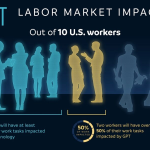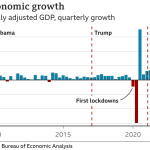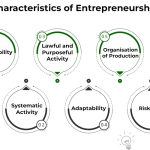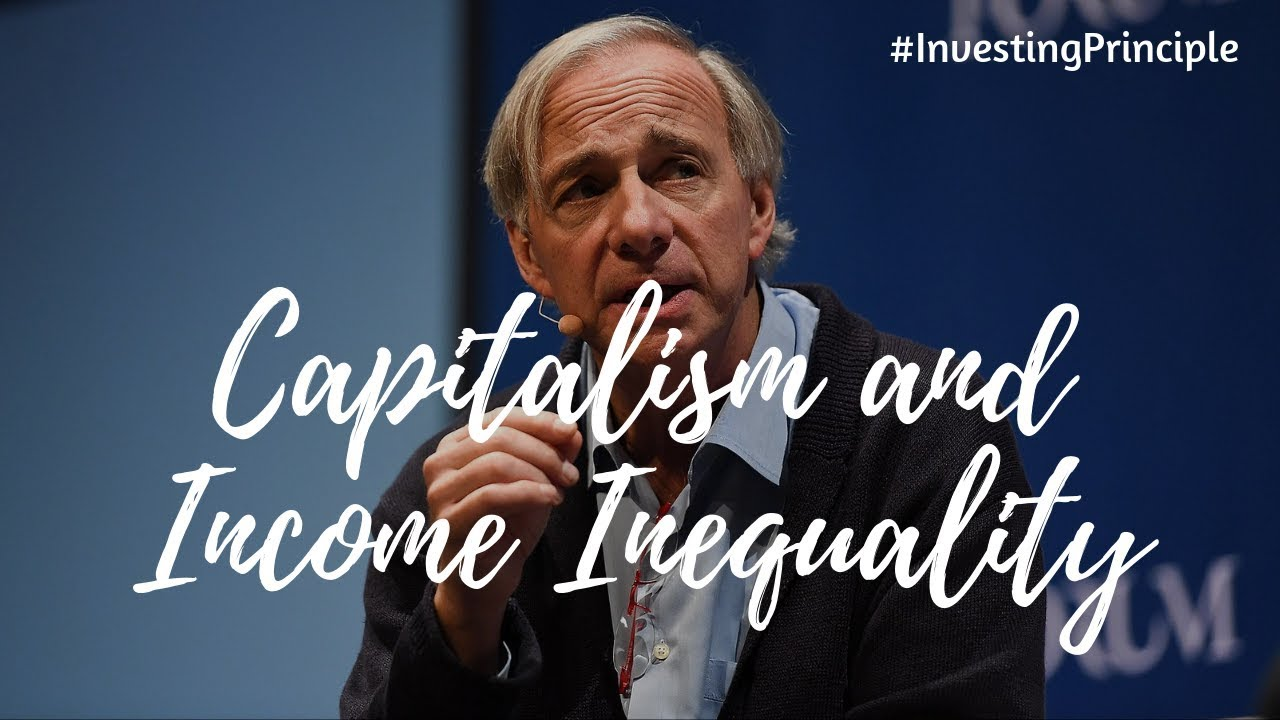The Income Inequality Debate has taken center stage as society grapples with the widening chasm between the super-rich and the rest of the population. With growing discourse around wealth redistribution, the multifaceted impacts of billionaires on economic justice and philanthropy and inequality are under scrutiny. Prominent figures like Elon Musk and Bill Gates are often hailed for their philanthropic efforts, yet their vast wealth raises questions about the systemic issues that allow such disparities to persist. Panel discussions, such as the one hosted by the Edmond and Lily Safra Center for Ethics, reveal contrasting views, from advocates of wealth redistribution to those who argue for the benefits of billionaires in driving innovation. Understanding the implications of trillionaires and their influence on society will be crucial in shaping a fairer economic landscape.
The ongoing discussion regarding disparities in financial wealth has ignited what many are calling the Wealth Disparity Discourse. In this arena, critical questions about the role of the ultra-wealthy in society intersect with the urgent calls for economic equality and social justice. As wealthy individuals engage in philanthropy and contribute to initiatives aimed at reducing poverty, the paradox of their immense fortunes continues to provoke debate around wealth redistribution and its practical applications. Scholars and policymakers alike are tasked with examining the trade-offs associated with billionaires’ influence, particularly concerning their impact on the lives of average citizens. As we explore the complex relationship between the affluent elite and systemic inequality, it is imperative to consider how best to achieve equitable opportunities for all.
Understanding Income Inequality: An Overview
Income inequality is a multifaceted issue that profoundly impacts economies globally. At its core, it refers to the uneven distribution of income among individuals or groups within a society. In recent years, heightened awareness has emerged regarding how wealth is concentrated among the wealthiest segments of the population, particularly billionaires and soon, potential trillionaires. The stark contrast between the lifestyles of the wealthy and the working poor begs the question of economic justice and the mechanisms that could be suggested for wealth redistribution.
Discussions surrounding income inequality extend beyond mere statistics; they encompass broader societal implications. The disparity in wealth influences access to education, healthcare, and basic living standards for millions, ultimately shaping the economic landscape of nations. Furthermore, the debate heats up around the impact of billionaires, who, despite their philanthropic efforts, may perpetuate systems that sustain inequality, sparking conversations about the ethical responsibilities that come with extreme wealth.
The Role of Billionaires in Society
Billionaires, often hailed as innovators and benefactors, have become central figures in the income inequality debate. Proponents argue that their wealth leads to significant advancements in technology and public welfare through philanthropic contributions. For instance, figures like Bill Gates have directed their resources toward tackling poverty, healthcare, and climate change, effectively positioning themselves as agents of social good. Their investments in solutions for pressing global issues provide a counter-narrative to the perception of billionaires as obstacles to economic justice.
Conversely, critics assert that the concentrations of wealth held by billionaires can lead to detrimental societal outcomes. They argue that the immense power and influence wielded by such individuals can corrupt political systems and exacerbate inequality. The environmental impact associated with billionaires is also notable, particularly as the world’s richest emit vast amounts of carbon compared to the average citizen, raising critical questions about accountability and the true cost of their wealth on the planet.
Philanthropy and Inequality: A Double-Edged Sword
Philanthropy has historically been viewed as a noble practice; however, its relationship with income inequality presents a complex conundrum. While philanthropic efforts by billionaires have indeed funded numerous projects aimed at alleviating poverty and supporting sustainable development, critics argue that these charitable acts may provide a veneer over the deeper systemic issues that foster inequality. This paradox raises the question: does philanthropy truly address the root causes of inequality, or does it merely serve as a band-aid solution that perpetuates existing power structures?
Moreover, the motivations behind philanthropy can be scrutinized. Some believe that the elite utilize charitable efforts to gain social legitimacy and avoid more stringent regulations or taxes that could lead to wealth redistribution. This dynamic ignites an ethical debate about the moral responsibilities of the super-rich in addressing systemic inequalities. Therefore, while philanthropy can offer immediate relief, the underlying concerns regarding its adequacy in promoting long-term economic justice must be critically evaluated.
Wealth Redistribution: Concepts and Controversies
Wealth redistribution remains a contentious topic within the framework of economic justice. Advocates of wealth redistribution argue that it is not only a moral obligation but also a practical necessity for leveling the playing field in society. The core concept is simple: reallocating resources from the wealthiest to those in need can help close the gap in income inequality and provide everyone with a fair chance at success. Such measures could include progressive taxation, social welfare programs, or policies aimed at increasing minimum wages.
However, opponents of wealth redistribution often voice concerns about its viability and effectiveness. Critics argue that high taxes on the wealthy may discourage investment and entrepreneurship, potentially stifling economic growth. The challenge lies in balancing wealth redistribution mechanisms while fostering an environment conducive to innovation and economic development. This ongoing debate underscored by differing economic ideologies reflects the complexities of implementing sustainable solutions to income inequality.
The Impact of Trillionaires on Economic Structures
As discussions surrounding the potential emergence of trillionaires intensify, it prompts critical reflections on the future of economic structures. Trillionaires represent an unprecedented level of wealth concentration which poses unique ethical and economic questions. The existence of such wealth could potentially reshape societal norms and attitudes toward wealth accumulation, further complicating the income inequality landscape. Future debates must contemplate whether trillionaires could secure stability for their wealth, thereby sidelining traditional mechanisms of wealth redistribution that have historically been employed.
Moreover, the rise of trillionaires may undermine notions of economic democracy. Critics argue that when wealth becomes too centralized, political power follows, potentially leading to the erosion of democratic institutions. This reality raises vital questions about accountability and representation for the vast majority who may feel disenfranchised. As society navigates the implications of extreme wealth, deliberate discourse on preventing undue influence on democratic processes becomes paramount.
Economic Justice: Pathways and Possibilities
Economic justice is a vital aspect of the income inequality debate, advocating for fair opportunities and equitable resource distribution. Those studying economic justice emphasize the philosophical underpinnings of fairness and equity, which argue for systems that ensure everyone’s basic needs are met while promoting the flourishing of individual potential. In the face of growing disparities, many see economic justice as not merely a theoretical discussion but as an urgent and actionable goal.
Implementing strategies for achieving economic justice can take various forms. Advocates often argue for policies that advance workers’ rights, promote inclusive economic growth, and foster a more equitable disposition of resources. Such efforts might also include investing in education and social support systems that empower marginalized communities to participate fully in the economy. Thus, economic justice is a multifaceted objective that intersects with discussions of income inequality, wealth redistribution, and the roles played by billionaires and corporations.
Corporate Responsibility and Social Ethics
As issues of income inequality become more pressing, the contours of corporate responsibility and ethics are coming to the forefront of societal discussions. Corporations are increasingly held accountable for their role in perpetuating wage gaps and environmental degradation. The ethical implications of corporate practices extend beyond profit margins; they challenge businesses to align their operations with social good. For instance, how corporations like Walmart navigate labor practices has sparked renewed scrutiny on their responsibility to create fair work conditions and fair compensation.
The debate extends to the self-regulation of corporations in their dealings with community engagement and philanthropy. Companies are now expected to integrate socially responsible practices into their business models, effectively challenging the notion that profit alone justifies corporate actions. A robust corporate social responsibility strategy not only elevates a company’s public image but also contributes to addressing the systematic issues of income inequality; thus, the pursuit of profit must reconcile with ethical considerations in fostering a sustainable economy.
Global Perspectives on Inequality
Income inequality is not solely a national issue but a global phenomenon, requiring an understanding of how different economies grapple with wealth disparity. Developed nations often exhibit stark contrasts in income distribution compared to developing countries, which may struggle with substantive infrastructural challenges that exacerbate inequality. Each country’s approach to wealth redistribution, corporate regulation, and social policy reflects its unique historical, cultural, and economic contexts, yielding varied outcomes in addressing inequities.
International collaboration and discussion on effective strategies for managing income inequality can reveal valuable insights. For instance, countries with strong social safety nets, such as those in Scandinavia, provide models for balancing wealth creation with equitable distribution. These global lessons underscore the necessity of cooperative frameworks and shared goals to address inequality in an increasingly interconnected world, propelling discussions toward comprehensive solutions that extend beyond borders.
Future Implications of Wealth Distribution
Looking ahead, the implications of current trends in wealth distribution will likely be significant. As growing numbers of billionaires emerge worldwide, and potentially, trillionaires, the fabric of society may shift dramatically. The increased polarization between the ultra-rich and the rest of the population could lead not only to social unrest but also to a reevaluation of the ethical frameworks guiding wealth accumulation and distribution. Furthermore, insights from prominent economic theories will be crucial in shaping policy responses.
Forecasting changes in wealth distribution necessitates consideration of technological advancements and their implications for labor markets. While innovations can create new wealth, they may also displace workers, raising questions about the safety nets needed to protect those left behind. Future debates will need to engage with these evolving realities, urging policymakers to envision comprehensive strategies that address the intricate links between income inequality, technological shifts, and societal well-being.
Frequently Asked Questions
What is the impact of billionaires on income inequality?
The debate on income inequality often highlights that billionaires can contribute both positively and negatively. While they can invest in initiatives that alleviate poverty and promote green technologies, their immense wealth can also exacerbate economic disparities. Panelists argue that the carbon emissions of the top 1% are equivalent to billions of people, suggesting that wealth redistribution could be a vital solution to mitigate income inequality.
How does philanthropy relate to income inequality debate?
Philanthropy is a significant aspect of the income inequality debate. Billionaires like Bill Gates invest in social causes and development projects aimed at reducing poverty. However, critics argue that philanthropy does not address the systemic issues that perpetuate income inequality and can sometimes mask the structural injustices caused by extreme wealth.
What are the arguments for wealth redistribution in the context of income inequality?
Advocates for wealth redistribution argue that it can help address the growing disparities between the rich and the poor. By reallocating resources from the wealthiest to programs aimed at reducing poverty and improving economic justice, proponents believe we can create a more equitable society. Discussions suggest that redistributing wealth towards green technology and essential services could benefit those most affected by inequality.
How do trillionaires affect the income inequality debate?
The prospect of trillionaires raises significant concerns in the income inequality debate. Critics argue that such extreme wealth concentrates power and undermines democratic institutions, while others believe that billionaires can drive economic growth and innovation. The challenge lies in creating a system that allows wealth creation without allowing inequality to corrupt societal structures.
What role does economic justice play in the income inequality debate?
Economic justice is central to the income inequality debate. It examines whether the current systems adequately ensure that everyone has the opportunity to achieve a decent standard of living. Proponents argue for frameworks that promote equitable distribution of resources, including policies that allow for democratic participation in wealth creation and ensure workers’ rights.
How can we address the impact of billionaires on economic inequality?
Addressing the impact of billionaires on economic inequality requires a multifaceted approach. Suggested strategies include progressive taxation, strengthening labor rights, and promoting a property-owning democracy that ensures equitable access to resources. The debate emphasizes the need for systemic changes to make economic structures fairer for all, rather than relying solely on the goodwill of the wealthy.
What are alternative views on income inequality and economic policies?
The income inequality debate features diverse perspectives. While some panelists advocate for radical wealth redistribution, others suggest that maintaining a market economy while enforcing stricter regulations on monopolies and promoting workers’ rights can effectively address inequality. The discussion reflects contrasting philosophies on balancing economic growth with social welfare.
How does Walmart exemplify issues in the income inequality debate?
Walmart serves as a case study in the income inequality debate, highlighting tensions between low prices and worker exploitation. Critics argue that while Walmart provides essential goods at low prices, it simultaneously suppresses wages and undermines unionization efforts. This raises questions about how to balance corporate responsibility with the needs of low-income workers amid rising income inequality.
| Panelist | Key Arguments | |
|---|---|---|
| Tom Malleson | Wealth redistribution is essential to combat environmental harm caused by billionaires. | |
| Jessica Flanigan | Billionaires contribute positively to society through job creation and investments in green energy. | |
| Christopher Robichaud | Questions the moral implications of potential trillionaires in society. | |
| Nien-hê Hsieh | A just society must meet basic needs and prevent inequality from corrupting democracy. | |
| Shruti Rajagopalan | Most billionaires earned their wealth, raising questions about meritocracy and market dynamics. | |
| General Discussion | Explores the balance between corporate practices, worker rights, and effective wealth distribution strategies. | |
Summary
The Income Inequality Debate is a complex and crucial discourse that examines the disparities in wealth distribution and its implications for society. The recent discussion led by the Safra Center for Ethics featured a diverse panel exploring contrasting viewpoints on the roles and impacts of billionaires. While some argue for wealth redistribution to ensure equity and environmental sustainability, others highlight the positive contributions of the wealthy in promoting job creation and innovation. Ultimately, the dialogue navigates the need for a balanced approach to wealth, advocating for systems that protect societal values and enhance the livelihood of all citizens.









